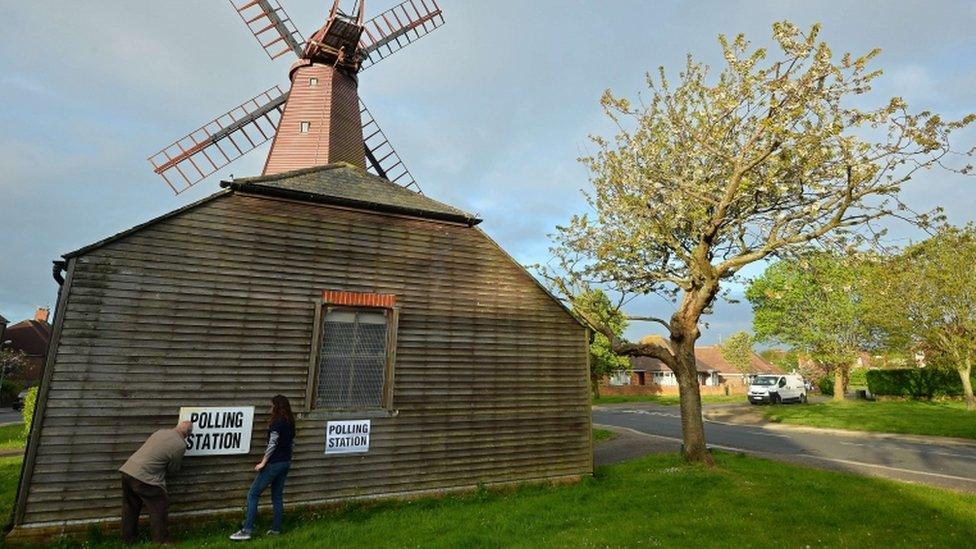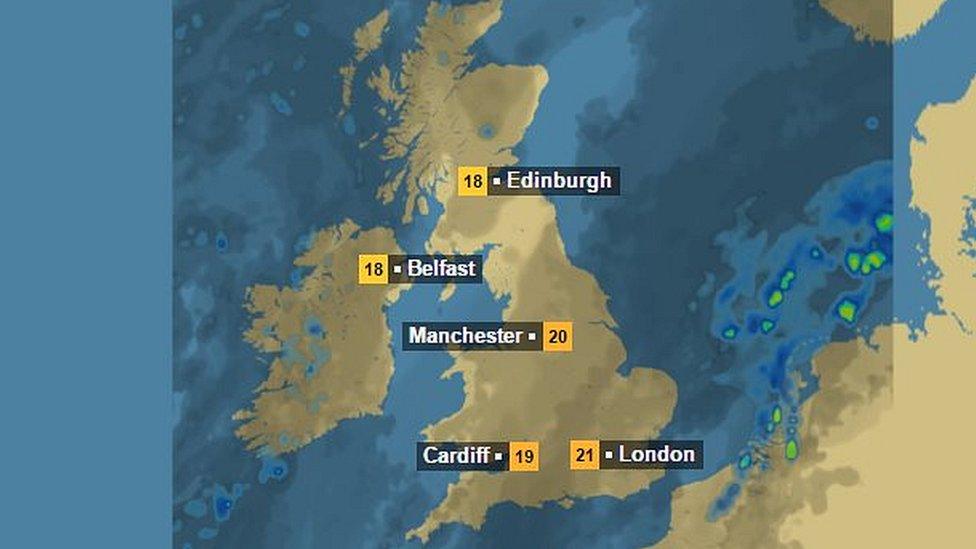How the BBC reports EU referendum polling day
- Published

Strict rules mean the BBC, like other broadcasters, is not allowed to report details of campaigning while the polls are open.
The basic principle behind this is the need for due impartiality of political coverage, as set out in the agreement accompanying the BBC Charter.
But there is also a legal dimension which applies to everyone - not just the BBC or broadcasters.
The restrictions on coverage last from 00:30 BST to 22:00 BST on polling day.
The BBC Trust's referendum guidelines say that during those times there should no coverage of "any of the issues relating to the referendum" campaign on TV, radio or bbc.co.uk.
Subjects which have been contested or are part of the campaign in any way - or other controversial matters relating to the EU or the referendum - must not be covered on polling day, to ensure the BBC's output cannot be seen as influencing the ballot while the polls are open.
However, online sites will not have to remove archived reports.

The BBC weather forecast for Thursday afternoon
Coverage is restricted to uncontroversial factual accounts, such as the appearance of politicians and others at polling stations or the weather.
Publishing information setting out the practicalities involved in helping people to vote, such as when the polls are open, the wording of the question, expectations of when the result may be known, etc. are allowed, but the BBC stops short of actually encouraging people to vote.
While the polls are open, it is a criminal offence for anyone, not just broadcasters, to publish anything about the way in which people have voted in the referendum, where that is based on information given by voters after they have voted.
That includes, of course, anything emerging from exit polls (which, by definition, are asking people how they actually voted), although the broadcasters themselves have not commissioned any exit polls for this vote.
In addition, no opinion poll on any issue relating to the referendum can be published by broadcasters until after the polls have closed.